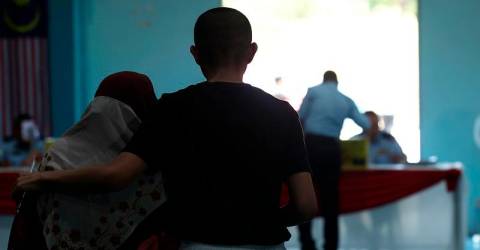PETALING JAYA: The Malaysian Employers Federation (MEF) has called on its members to support government efforts to assist parolees and give them employment opportunities.
Its president Datuk Dr Syed Hussain Syed Husman told theSun that thus far, the feedback from employers has been positive, but more needs to be done.
He said the MEF recently hosted its second conversation series, titled “Unlock Potential, Hire Parolees”.
The initiative was aimed at promoting the hiring of parolees as a valuable labour resource for the private sector.
About 85 representatives encompassing manufacturing and non-manufacturing sectors such as plantation, construction, hospitality, and services attended the discussion.
The Malaysian Prisons Department, Social Security Organisation, and Ready Set Go Sdn Bhd, a company that offers pre-employment training, mass recruitment and team-building services, also gave their input.
Syed Hussain said discussions centred on the parole system, with representatives sharing their experiences in hiring parolees, and providing insights into the support systems available for employers.
He said the enthusiastic participation of these companies underscored the potential for hiring parolees, although questions were raised regarding the hiring process, employer incentives, and government support.
“One concern raised is that in the interest of transparency, are employers duty-bound to tell their employees that a parolee has been hired?
“The MEF takes the position that this is confidential, just like an employee’s salary. Furthermore, a parolee is in the process of being rehabilitated and should be given every opportunity to turn over a new leaf.
“The last thing we want is for other employees to look down on them as ‘criminals’. Doing so would defeat the whole purpose of the scheme to hire parolees,” he said.
Syed Hussain also emphasised the importance of “social justice”, which he said is about fairness and providing opportunities for everyone.
He said MEF believes that hiring parolees aligns with the principle of social justice and that it is a moral duty of all citizens to support other Malaysians in need.
He also urged the public not to stigmatise parolees, noting that many of them had committed criminal acts due to challenging circumstances.
“However, sometimes circumstances, desperation, a sudden fit of anger or heightened emotion would cause them to commit a crime.
“They paid for it by being sentenced by the courts and now deserve an opportunity to reintegrate into society to contribute as responsible citizens, so let’s not deny them this chance.”
Syed Hussain said MEF’s call on the corporate sector to trust and allow parolees to work highlights the scheme’s potential for success.
In March 2022, then home minister Datuk Seri Hamzah Zainudin proposed that industries plug foreign labour shortages by hiring parolees.
Hamzah had said the ministry would place 80% of the 10,000 prison inmates that would undergo the Parole System Programme, Licensed Release of Prisoners Programme and Resident Reintegration Programme in industries that required manpower.
However, Syed Hussain said parolees who are employed should also not be deemed as temporary replacements for migrant workers.
He added that despite the negative stereotypes about parolees, there are many success stories of them thriving after being given employment.
“Our feedback shows they are hardworking and many have turned their lives around.”

